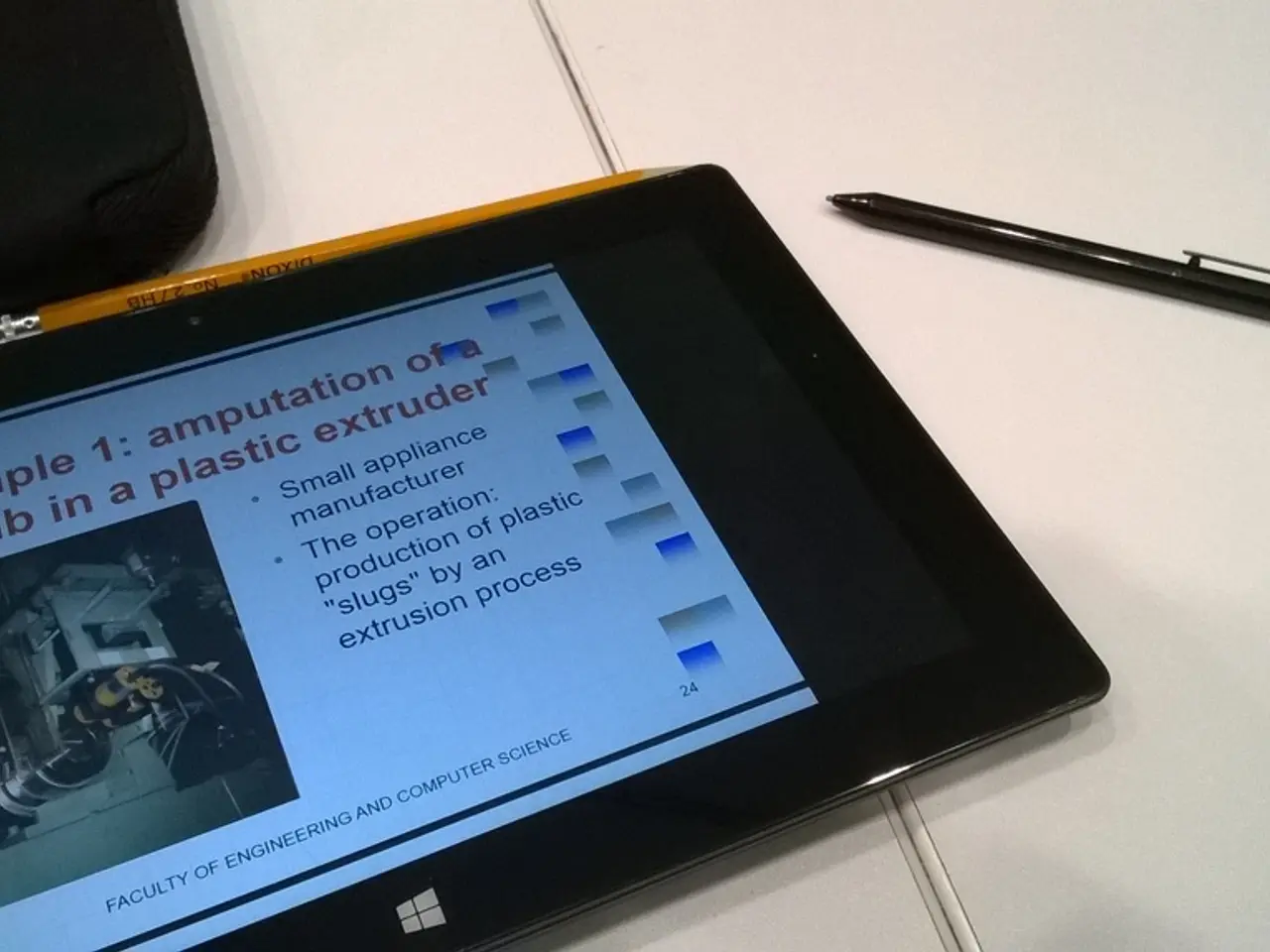Guiding the Naive: An Introduction to Self-Reflection and Awareness”
Metacognition, the awareness and regulation of cognitive processes, is a powerful tool that can significantly improve learning, problem-solving, and decision-making skills. This intriguing concept, often referred to as "thinking about thinking," is divided into two categories: metacognitive knowledge (awareness of cognitive abilities, learning styles, and strategies) and metacognitive regulation (the ability to plan, monitor, and adjust thinking and learning) [1].
In our daily lives, metacognition manifests in various ways. For instance, adjusting timing in cooking, steering discussions in meetings, and choosing to pause in parenting or conversations are all examples of metacognitive practices.
To develop metacognition, several strategies can be employed. One such strategy is planning tasks thoughtfully. By creating organized plans or step lists, learners can clarify how to approach a task, identify where to focus, and connect tasks to larger goals. This enhances task relevance and metacognitive awareness [1][3].
Another key technique is monitoring and self-questioning. During a task, learners should continuously ask questions such as "Have I seen this before?" or "Am I on the right path?" to keep track of their understanding and progress. This habit of self-questioning helps learners self-regulate and overcome difficulties [3].
Reflection and evaluation are also crucial components of metacognitive development. After completing tasks, learners should evaluate the success of strategies used, comprehension gained, and areas for improvement. Creating self-evaluation documents or reflective journals reinforces awareness of one’s thinking and learning processes [1][4].
Cultivating supportive environments is another essential strategy. Tailoring the learning environment to personal preferences can optimize focus and retention. A classroom culture that values metacognitive thinking and supports risk-taking can foster growth mindsets and resilience [1][4].
Modeling and guided practice, where teachers or mentors think aloud during problem-solving to demonstrate metacognitive strategies, helps learners internalize how to plan, monitor, and evaluate their thinking. Open-ended questions and reflective discussions deepen metacognitive skills [4].
Engaging in collaborative and problem-based learning exposes learners to diverse perspectives, enhancing the ability to analyze problems from multiple angles and develop mastery in decision-making. Collaborative reflection strengthens empathy and meta-awareness [2].
Explicit teaching of metacognitive strategies, especially for learners less likely to use these strategies independently, supports the development of self-regulation and critical thinking [3].
Certain supplements, like L-theanine + caffeine, citicoline, Bacopa Monnieri, and Rhodiola Rosea, may enhance metacognitive capacity by supporting focus, attention, and mental energy [5].
Moreover, greater emotional intelligence can be achieved through metacognition, as it involves recognizing emotional states, their triggers, and their effects on decisions. Metacognition encourages pausing, evaluating thinking, and considering alternatives, which can lead to better problem-solving and decision-making [6].
Lastly, sleep and exercise are essential for metacognitive growth as they support memory consolidation, executive function, and brain resilience [7].
In conclusion, metacognition is a natural capacity that can be trained through practice, self-questioning, and reflection, putting one in control of their mental life. By consistently practicing these strategies, learners develop better awareness of their own cognition, improving learning efficiency, problem-solving effectiveness, and decision-making quality across contexts [1][2][3][4]. Students who use metacognitive strategies often outperform those who don't, even when their raw intelligence is the same [8]. Therefore, embracing metacognition can lead to a more efficient, effective, and self-aware learning journey.
References: [1] Zimmerman, B. J. (2000). Becoming a self-regulated learner: An overview. Theory into practice, 39(4), 129-134. [2] Chi, M. T. H., Bassok, M., Lewis, M. L., Reimann, P., & Glaser, R. (1989). Self-explanations: how students study and use examples in learning to solve problems. Cognitive Science, 13(2), 145-182. [3] Dunlosky, J., Rawson, K. A., Marsh, E. J., Nathan, M. J., Willingham, D. T., & McDaniel, M. A. (2013). Improving students' learning with effective learning techniques: Promising directions from cognitive and educational psychology. Psychological science in the public interest, 14(1), 4-58. [4] Schraw, G. (2007). Metacognition and self-regulated learning. In R. J. Sternberg (Ed.), Handbook of intelligence (pp. 473-489). Cambridge University Press. [5] Bauer, D. J. (2007). Neuropharmacology of cognition: a review of the literature. Neuropharmacology, 52(1), 1-26. [6] Schraw, G., & Dennison, S. (1994). Metacognition and self-regulated learning: theory and research. Routledge. [7] Walker, M. P. (2017). Why we sleep: the new science of sleep and dreams. Scribner. [8] Zimmerman, B. J., & Kitsantas, A. (2005). Self-regulated learning and academic achievement: a meta-analytic review of research. Review of Educational Research, 75(3), 327-365.
In the realm of education and self-development, metacognition plays a substantial role in personal growth by improving learning, problem-solving, and decision-making skills. To foster personal growth, learners can employ strategies such as planning tasks thoughtfully, monitoring and self-questioning, reflecting and evaluating, and creating supportive environments, all facilitating self-awareness and efficiently guiding mental processes.




